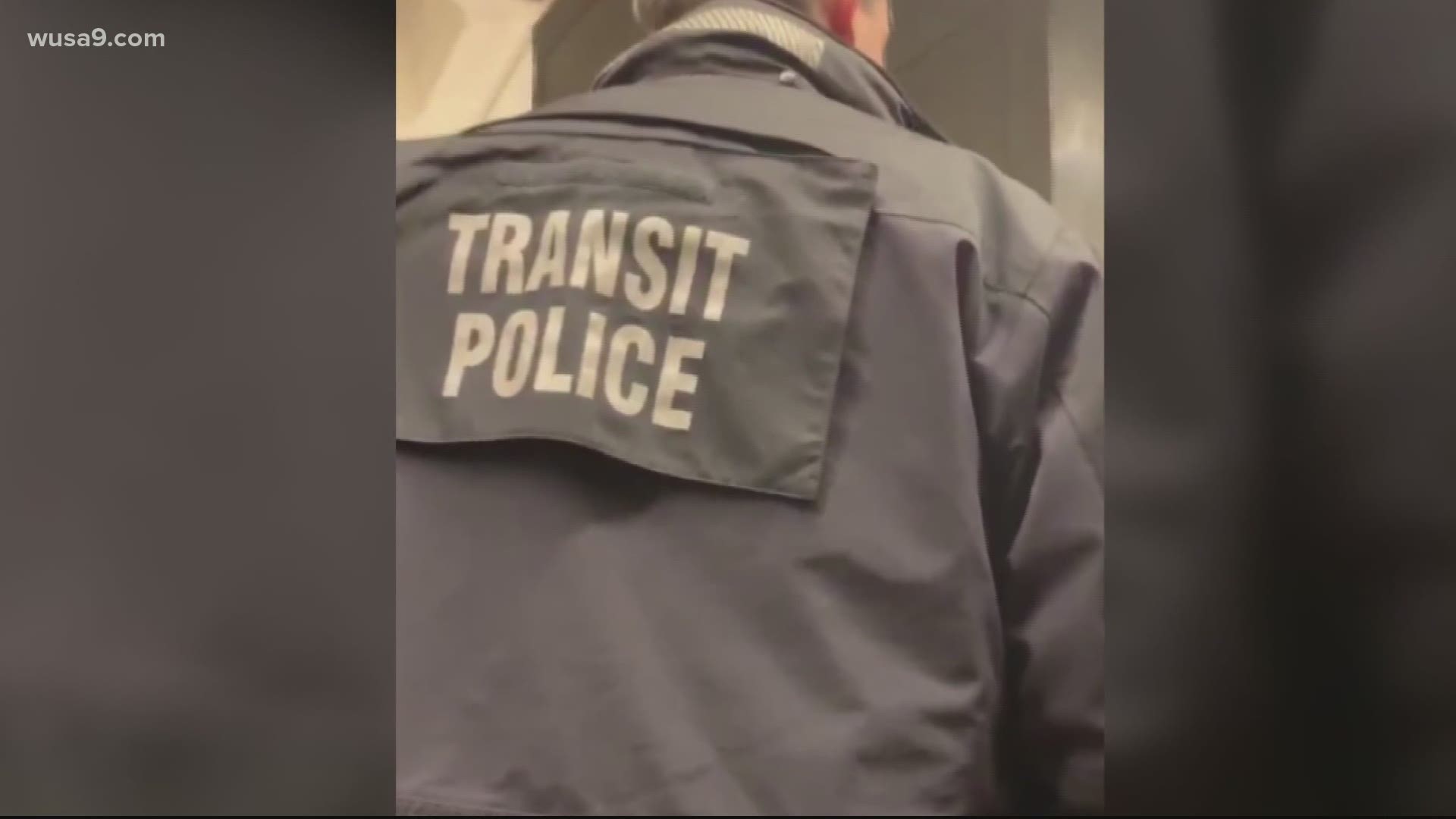WASHINGTON — For the first time ever, Metro Transit Police will have outside oversight. Metro's Board voted unanimously to create a review panel that will oversee the department, but some critics believe the board doesn't have enough authority.
The panel focuses on the transparency and accountability of Metro police. This comes after years of accusations of complaints of excessive force by the transit police.
The unpaid seven-member panel will be comprised of several citizens who live in the transit area and will be appointed by Metro's board. It will also include a few high ranking law enforcement officers from the area.
The police members will serve three years, while citizen members serve two-year terms. The panel will not be allowed to look at original complaints, only completed investigations from the previous quarter to make sure the outcome is fair. The board will then bring any recommendations to transit police chief Ronald Pavlik.
RELATED: Community questions response after Metro Transit Police confirms they put 13-year-old in handcuffs
The panel's meetings will be behind closed doors, but its rulings will eventually be made public. However, Metro's General Counsel will have to review those rulings first.
"This is a big step forward, especially during this time. I recognize we are still trying to figure this out. As we navigate this new space I ask that riders and the public will be willing to go with us on this journey. Holding us accountable, but understanding that we may not always get it right," said Stephanie Gidigbi, First Vice-Chair, District of Columbia.
Metro's police department has a long history of accusations of discrimination and excessive use of force.
RELATED: Metro is losing more money than it thought to fare evasion—and thinks the real number is much worse
In 2018, the District decriminalized fare evasion on Metro after a study came revealed 91 percent of the riders stopped for that reason, were black.
That decision was also sparked by incidents similar to Diamond Rust. A young mother seriously injured after officers arrested her and slammed her to the ground because she didn't pay her bus fare.
Critics say this review board a good first step, but it's not enough. D.C. Councilmember Robert C. White Jr. (D-At Large) has been pushing for oversight of transit police.
Tuesday, White started the process to include an all-civilian review panel in the city's budget.
"It is vital that a civilian police complaint board have the ability to investigate complaints, hear from witnesses, question officers and have authority to recommend penalties, which WMATA's review panel will not," said White.
Giving the review panel more authority is not an easy feat. It would require amending the WMATA Compact, an agreement that Metro operates under. Changing that would require the approval of the District, Maryland, Virginia and Congress.

